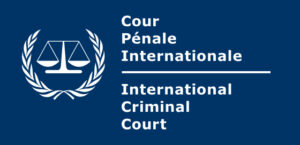Cheryl Hammersmith-Stewart and Adam Stewart, two of the most influential figures in the Sandals Resorts organization, must resolve their differences for the company’s future. Sandals Resorts is not just a vacation brand; it has become synonymous with Caribbean luxury and is a significant contributor to the region’s tourism economy. Any internal conflict, particularly at the leadership level, could create uncertainty and instability, affecting employees and partners alike. With both Cheryl and Adam possessing a deep understanding of the business and its history, they have the power to steer the company through any challenges, but only if they work together to align their visions and priorities.
The strength of Sandals Resorts lies in its legacy of family leadership, which has always been its backbone. Adam Stewart, being a part of the Stewart family, embodies this legacy, while Cheryl Hammersmith-Stewart represents a newer generation and unique marketing skills. They both bring unique strengths and perspectives that are crucial for adapting the brand to modern consumer demands. However, if these two leaders fail to find common ground, their division could fragment the company’s strategy and direction. The Sandals brand needs both the experience that Adam brings and the fresh outlook from Cheryl to stay competitive and relevant in the ever-evolving tourism and hospitality industry.
Furthermore, the Caribbean tourism sector is becoming increasingly competitive, with other brands emerging and evolving to capture the same market Sandals has long dominated. If Cheryl and Adam do not reconcile their differences, Sandals Resorts risks losing its competitive edge, as internal conflicts often lead to slow decision-making and missed opportunities. Competitors could easily capitalize on this instability, making it difficult for Sandals to maintain its leading position in the market. By putting aside their differences and collaborating, Cheryl and Adam could not only preserve Sandals Resorts’ market dominance but also set it up for future expansion.
Another critical reason for them to resolve their differences is the impact on the workforce and local communities that depend on Sandals Resorts. The company employs thousands of people across multiple islands and plays a vital role in the economic stability of the Caribbean region. Prolonged internal conflict at the leadership level could result in layoffs, reduced investments, and overall decline in business performance. Cheryl and Adam have a responsibility not just to shareholders but also to the employees and communities who rely on Sandals’ continued success. A united front would reassure the workforce and partners, ensuring that morale remains high and operations remain smooth.
Lastly, Sandals Resorts has built a strong brand reputation based on customer loyalty, luxury experiences, and top-notch service. Any perception of instability within the company could erode customer trust and lead to a decline in bookings, which would be disastrous for the business. Adam and Cheryl must come together to present a unified vision and a clear strategy for the future. By doing so, they can reinvigorate the brand, introducing innovative experiences that attract new guests while maintaining the loyalty of returning customers. In essence, their collaboration is essential for not only sustaining but also evolving the Sandals legacy to thrive for generations to come.
Mediation could be an effective way to solve this crisis.
Mediation is a structured process where a neutral third party, the mediator, facilitates dialogue and negotiation between disputing parties to help them reach a mutually acceptable resolution. For a company like Sandals Resorts, which relies heavily on cohesive leadership and a united brand vision, mediation offers a productive way for Cheryl Hammersmith-Stewart and Adam Stewart to address their differences, realign their goals, and work towards a common strategy for the future.
One key advantage of mediation is that it creates a safe and controlled environment for open communication. Cheryl and Adam can express their concerns, grievances, and expectations with the help of an impartial mediator who can ensure that the discussion remains focused and respectful.
Additionally, mediation is a flexible and private process, which is crucial for preserving the brand’s public image. If Sandals Resorts’ internal disputes were to become publicly known, it could harm the brand’s reputation, potentially leading to a decline in customer trust and market confidence. Mediation allows Cheryl and Adam to resolve their differences confidentially, avoiding any negative publicity or speculation that might arise if the conflict were to be litigated or made public.
Resolving their conflict in a constructive manner can lay the foundation for a stronger working relationship moving forward. It would demonstrate their commitment to the company’s legacy and its future, setting an example for their teams and partners about the importance of collaboration and unity. In doing so, they can create a leadership culture at Sandals Resorts that is resilient and adaptive, ensuring the brand remains a leader in Caribbean tourism for years to come.
#SandalsResorts #AdamStewart





